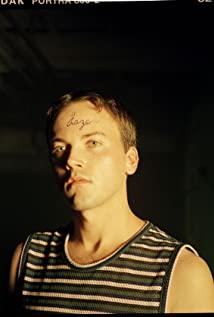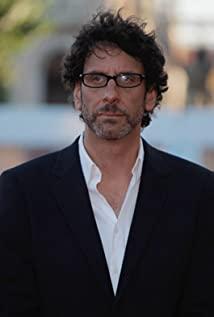This is a great masterpiece. Accidents can no longer start unexpectedly, making me think I bought the wrong disk. Pieces of seemingly trivial and bizarre plots, plus unique characters, and deep themes have earned the film an Oscar nomination for best work. The Coen brothers mature and perfect the use of light and color composition and the focal length of the camera to construct the image world. The jazz application of formalism, and the superb cutting technique, play out the ups and downs of this story in the hands of the Coen brothers. There is so much to think about, learn from, and learn from.
Here I think it's just a superficial talk about the theme of the movie. As in one of the film's funniest dialogues, Larry asks a second rabbi's question after a bizarre story: "why even tell me the story?" We can't help but ask the film why even tell me the story? It's hard to start a relationship, ask the directors why even tell me the story? About these questions, I can only say "we can't know everything." But I would like to share with you what I know and some of my thoughts .
I think the film thinks about religion, society and life. Of these, the latter is the deepest subject.
The first is a merciless satire of religion (Judaism in the film). First, the film depicts three irresponsible and ignorant rabbis images. As the woman in the middle said, the Jews have many more stories to learn from. The first one only knows about the parking lot. The second only knows the story of telling teeth. The third pretending to be godlike (notice the decorative shot of his house, especially the watch) actually ends up saying the lyrics. According to the concept of hermeneutics, the interpretation of the Bible can be varied. So these little things can eventually be turned into stories of seemingly revelatory significance, just like the Bible itself, through a myriad of strange connections. And these nutritious stories don't actually have any practical effect. If you don't believe me, think why the director linked the second rabbi speaking to Larry with his inexplicable speech at the funeral. But what actually helped Larry resolve the conflict was two things: bribes from Chinese people and marijuana from sexy and beautiful neighbors. These two kinds of things rejected by society seem to contradict being a serious man. The former solves expenses such as legal fees, and the latter gives Larry spiritual assistance. The irony is that the protagonist is smoking marijuana and saying that the first rabbi is right. And when the hurricane came, the teachers of the parish school couldn't open the door to the basement.
The protagonist wants to be a serious man, who is upright, dedicated and takes care of his family and children, but he hits a wall everywhere. Only when he becomes compromised can he find a way out. The family is reunited, the child completes the ceremony, the job is stabilized, and all the crises seem to be resolved. This further reveals the absurdity of this society. Professor Asai. Chinese student. gamble. Sell records. lawyer. Son smokes marijuana by ritual method. (Not to be specific) can be used as examples.
In the end, and at the deepest point of the film, it reveals the impermanence of life, and the only thing that can be proved is uncertainty itself. As the title of the protagonist's dream says: it proves we can't certainly know what's going on. For that cat, whether it is life or death can only be known by seeing it. For life, what the future will be like only then will be known. Life is unpredictable. Fate is unpredictable. The whole story about Larry shows this, including the wife's affair, the anonymous letter, and more. The bizarre story at the beginning is also the interpretation of this point of view. The white-bearded old man is a man or a ghost. If he doesn't stab him, will he be bad for the couple? Did they commit a crime? Only when the future becomes reality will we know whether the original prediction was correct or not.
In fact, there is another place that is thought-provoking. When the protagonist feels that he accepts a bribe to change his grades, the phone rings. He appears to be seriously ill. The karma came too soon. Is this accidental? Or God's punishment for him? The hurricane in front of his son symbolizes his road to adulthood, that is, life is full of uncertainty.
View more about A Serious Man reviews










